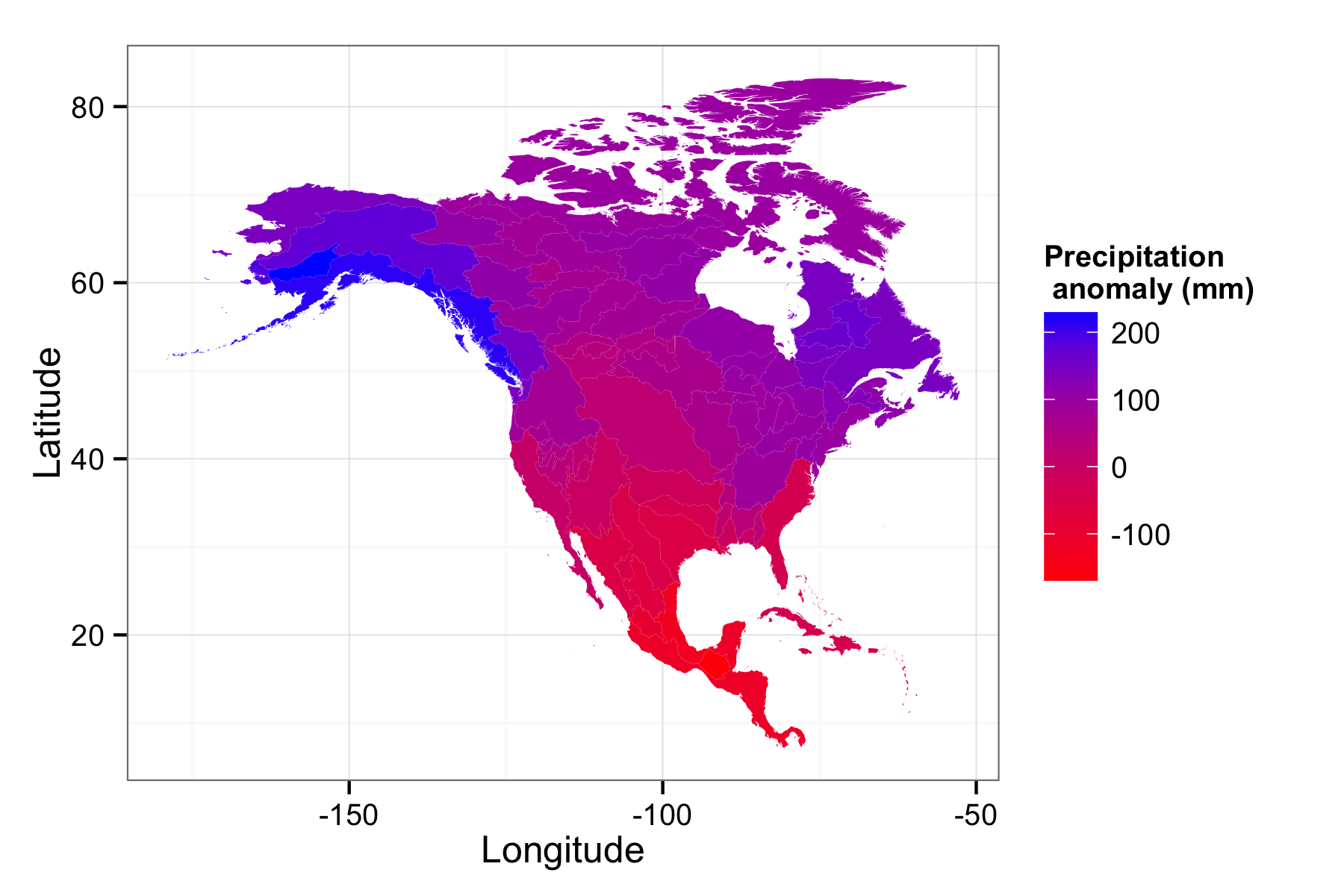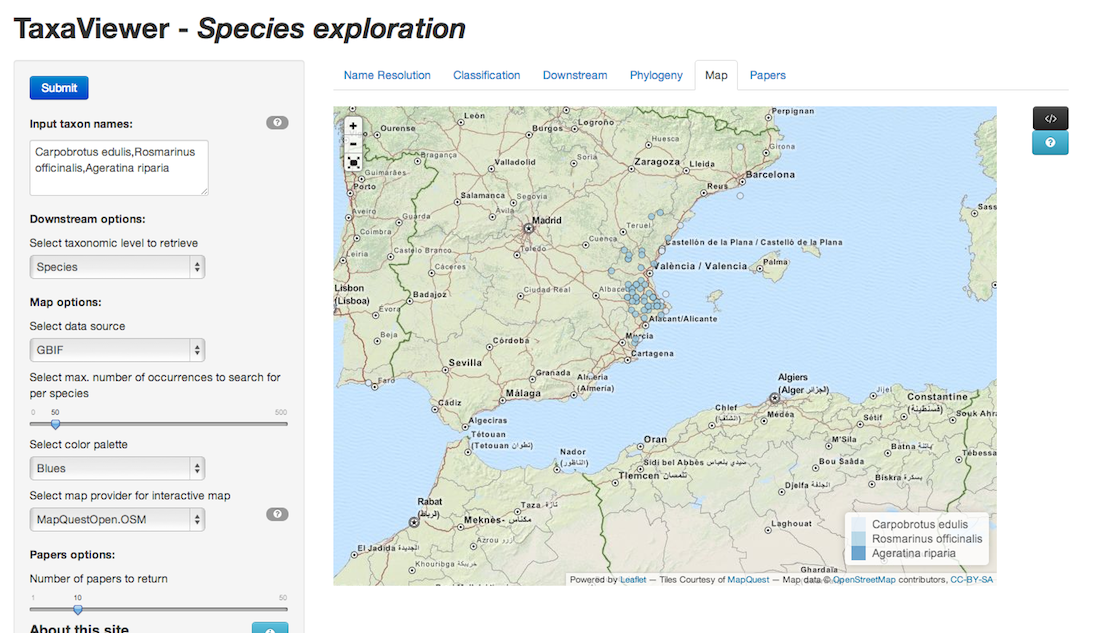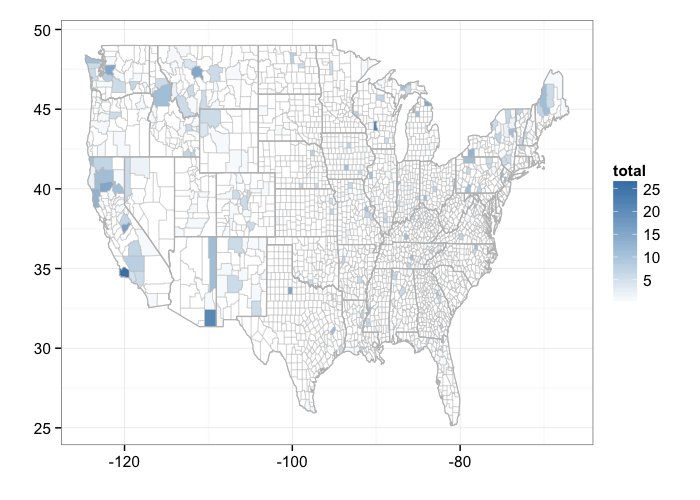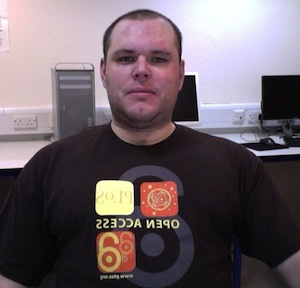It’s the last week in July and this means that ecologists across North America (and elsewhere) are busy returning from the field and preparing their presentations and posters in anticipation of the annual Ecological Society of America meeting. The entire rOpenSci dev team will be in attendance this year and we have several workshops, talks, and events planned out.

A recent video on the PBS Ideas Channel posited that the discovery of climate change is humanities greatest scientific achievement. It took synthesizing generations of data from thousands of scientists, hundreds of thousands (if not more) of hours of computer time to run models at institutions all over the world. But how can the individual researcher get their hands of some this data?
Previously on this blog and on my own personal blog, I have discussed how easy it is to create interactive maps on Github using a combination of R, git and Github. This is done using a file format called geojson , a file format based on JSON (JavaScript Object Notation) in which you can specify geographic data along with any other metadata.
We have a number of packages for getting species occurrence data: rgbif and rbison. The power of R is that you can pull down this occurrence data, manipulate the data, do some analyses, and visualize the data - all in one open source framework. However, when dealing with occurrence data on maps, it is often useful to be able to interact with the visualization.

R has a reputation of not playing nice on the web. At rOpenSci, we write R pacakages to bring data from around the web into R on your local machine - so we mostly don’t do any dev for the web. However, the United States Geological Survey (USGS) recenty held an app competition - it was a good opportunity to play with R on the web. We won best overall app as described in an earlier post on this blog.
At rOpenSci’s virtual HQ we’re busy planning out several exciting projects for the coming year thanks to the generous 180k grant from Sloan. In the interest of maintaining transparency with our community here are additional details of what we hope to accomplish and how we’ll measure our successes. We have also posted a full copy of our proposal over at figshare.
Today we are pleased to announce that rOpenSci has been awarded a generous 180K grant from the Alfred P. Sloan foundation. This funding will allow us to develop a whole new suite of tools and provide scientists with general purpose toolkits to access various kinds of scientific data. We will also be traveling a whole bunch this year and running workshops at several conferences and universities.

The USGS recently released a way to search for and get species occurrence records for the USA. The service is called BISON (Biodiversity Information Serving Our Nation). The service has a web interface for human interaction in a browser, and two APIs (application programming interface) to allow machines to interact with their database.
We’ve been busy We have been busy hacking away at code and our website. Here is an update on what we’ve been up to. Packages rplos/alm PLoS provides two different API services: the Search API and ALM API. As their names suggest, the search API lets you search and get text from their papers and associated metadata. The ALM API allows you to get article level metrics data on PLoS papers.

A guest blog post by Steve Moss Why Python? A little background! I started using Python in the summer of 2010. I had applied for the Master of Research postgraduate degree in Computational Biology at the University of York. They teach the programming portion of their course using Python. I thought it might be useful to learn it, before starting, to give me a bit of a head start.